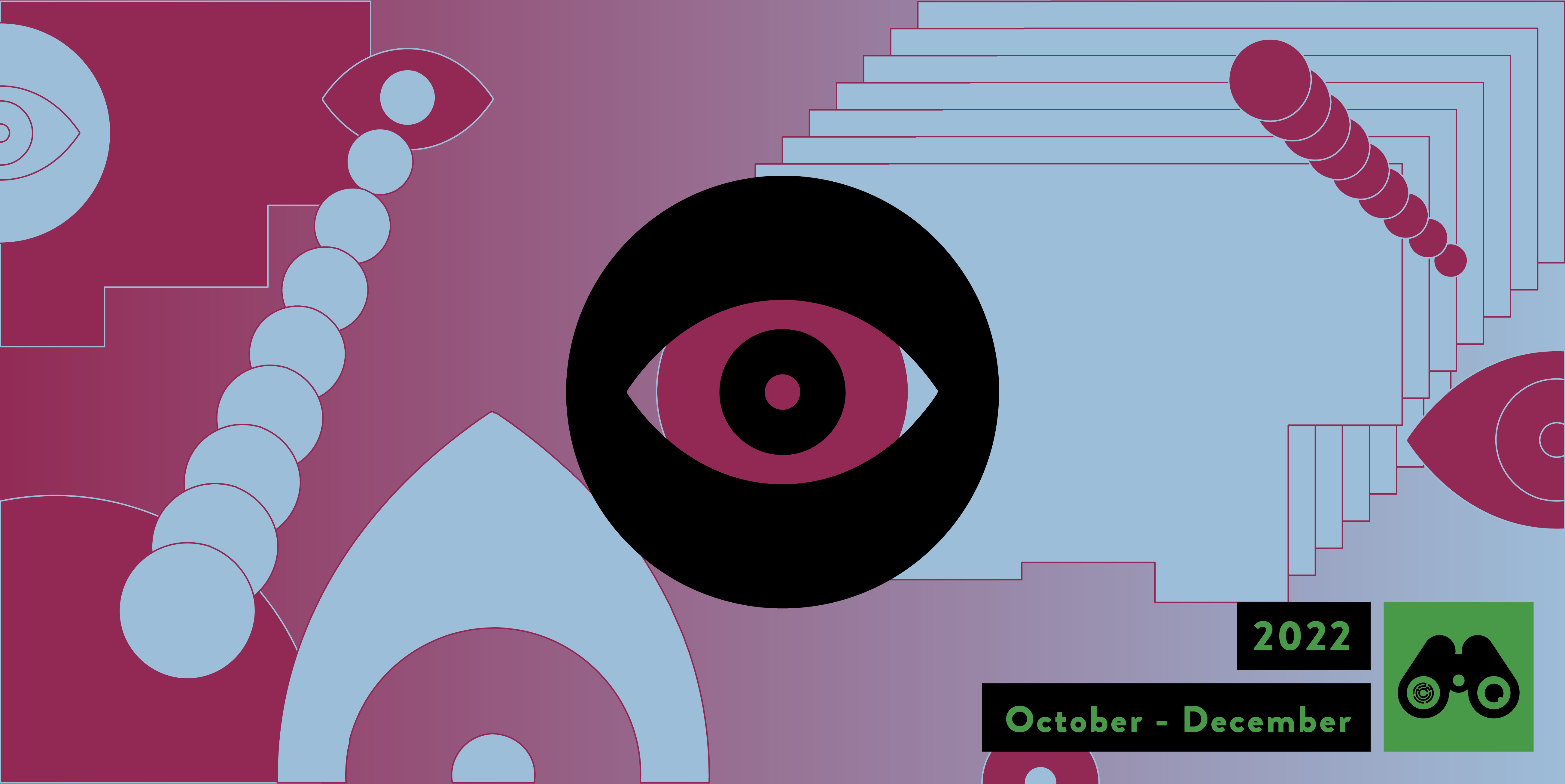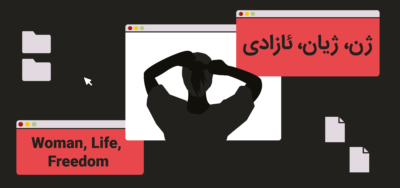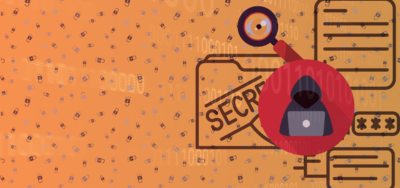Due to widespread executions, repression, and arrests since the start of the Woman, Life, Freedom movement, there has been a decrease in the number of protesters on the streets. As a result, a significant portion of the security forces’ efforts has been redirected toward suppressing online spaces.
One of the most noteworthy charges against the detainees during the previous quarter by the Iranian Cyber Police, also known as FATA, is “insult and slander.” In certain instances, those accused of these charges made statements on local online channels criticizing the government’s oppression of the movement. Other examples involved calling for a boycott of businesses which refused to participate in calls to strike on social media.
“Spreading disinformation” is another significant charge used during this time, frequently leveled against the accused for providing information about the protests and related events from a perspective contrary to the official narrative. In another notable case, the Isfahan’s Intelligence forces announced the arrest of 23 influential online activists in this province.
According to Filterwatch research, between 1 October to 31 December 2022, over 70 individuals from various segments of Iranian civil society, including teacher and trade, activists, writers, journalists, technology experts, members of technology companies, theater, and television artists, alongside ordinary citizens were targeted by security and judicial actions.
Teacher’s Union Activists
As protests extended to schools, the treatment of teaching and other school staff who supported the nationwide protests or student protests has also intensified. Meanwhile, there has been a growing trend of security forces exerting pressure on prominent Teacher’s Union activists for their online activities. Hamid Jafari Nasrabadi, a teacher, writer, and football coach, was arrested in his school on 19 October and was sentenced to three years in prison in December. Charges against Nasrabadi include publishing poems and other writing on his personal social media pages, including on Facebook, WhatsApp, and Telegram and ‘insulting the Supreme Leader,’ allegedly based on conversations in private groups with friends and family on messaging platforms like Telegram and WhatsApp.
Ismail Khodayari and Kobra Jabari are other union activists convicted of “anti-government propaganda online.”
Summoning, arresting, and prosecuting labor activists in pursuit of trade union demands and civil rights is in violation of Article 27 of The Constitution of the Islamic Republic of Iran and contravenes Article 20 of the Universal Declaration of Human Rights and Articles 21 and 22 of the International Covenant on Civil and Political Rights.
Persecution of Intellectuals
During the recent nationwide protests, numerous writers, poets, translators, and journalists have been arrested or interrogated and faced charges due to content published online; Some still remain in custody, while others were released on bail. Between the final week of September and the final week of December 2022, at least 30 writers and journalists were arrested or prosecuted for publishing articles online.
This is just a fraction of the numerous journalists, writers, and poets who have faced threats, summons, and arrests since the start of the uprising. Their alleged crimes was to voice their dissent against the widespread repression and express the situation’s realities on their personal online platforms. Although Article 10 of the Universal Declaration of Human Rights and Article 9 of the International Covenant on Civil and Political Rights explicitly guarantee the right to a fair trial, many of the individuals who have been detained are being denied these fundamental rights.
Ordinary Individuals
Most of the over 20,000 individuals arrested during the recent protests were ordinary citizens and individuals. Many are without a history of social or political activism, nor are they known artists, lawyers, journalists, or writers. Yet, they have accounted for the highest number of arrests. Many of these people have been stopped by law enforcement officials on the street, their mobile phones have been searched, and they have been arrested and charged in relation to photos or Instagram stories on the protest.
The Technology Sector
Since the onset of the nationwide protests, we have observed various security measures, such as the detention of employees from companies like Iranserver, Snap, and Tapsi. Concurrently, users have faced a substantial amount of filtering and intermittent internet outages since the initial days of the protests. Experts in the technology sector have naturally objected to these conditions, which has resulted in the arrest of several of them.
All of these activists have been released, either with or without bail. However, Amir Emad Mirmirani, also known as Jadi, recently revealed in a video on his personal Instagram page that he has been sentenced to six years of imprisonment by the primary court. He is currently awaiting the decision of the appeal court on his sentence.
The detained activists in information and communication technology share a common cause: protesting against The Cyberspace Protection Bill, the layered internet system, internet censorship, and the establishment of the National Information Network.
Artists and the Entertainment Industry
The House of Cinema (the largest trade union for the entertainment industry in Iran), in collaboration with the House of Theater and the House of Music, has established a committee for performing artists’ legal and judicial protection. The committee has compiled a list of 100 artists who have been detained, and they have also noted that a considerable number of renowned actors and directors have been barred from leaving the country. Mehdi Koohian, a producer and member of the committee has stated that most of those arrested are those who have engaged in online protests.
The mass arrests due to online activities, coupled with disruption and severe limitations on internet access, the accelerated development of the National Information Network, and the creation of a tiered access to the internet have ushered in a dark era for online activists and internet users in Iran.
State’s Efforts to Control Online Activities Through Public Space Regulation
Following the initial attack on online spaces and social media platforms by various forces in the country, this response is continuing with the interrogation, summons, and arrests of prominent figures.
On 11 October, Masoud Setayeshi, the Judiciary’s spokesman, suggested that some artists and athletes may “have engaged in actions such as encouraging and inciting people,” emphasizing that the legislature”will not tolerate” such conduct. He added that “specific circumstances will be offered for these individuals to apologize to the people and the Islamic Republic.”
Parallel to these measures, Revolutionary Courts in various cities began imposing severe sentences based on the content obtained from people’s mobile phones. Filterwatch has received information from three sources who were detained for their online activities in recent months and have since been released from prison. These sources have provided personal observations on how the cases of those who were detained during this time were being framed. According to these sources – who spoke to Filterwatch under the condition of anonymity for their safety – a large number of those imprisoned due to the contents of their mobile phones, were charged with “insulting the sacred values of Islam,” “insulting the Supreme Leader,” and “offenses against the national and international security of the country” through the publication of disinformation.
One person, detained in the early days of the Woman, Life, Freedom movement, told Filterwatch that they were charged with “insulting the Supreme Leader” based on a conversation in their family’s WhatsApp group. He added: “We expressed support for the protests in our family group chat and shared some humorous slogans; these slogans were later used as evidence against me during my trial.”
This approach can be viewed as all-encompassing and targets not only individuals who participate in protests but also teachers, union activists, intellectuals, theater, and cinema community members, athletes, and essentially anyone inside Iran who criticizes the status quo.




